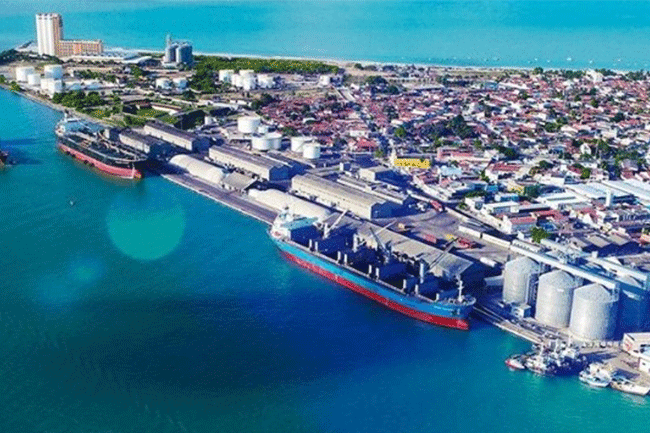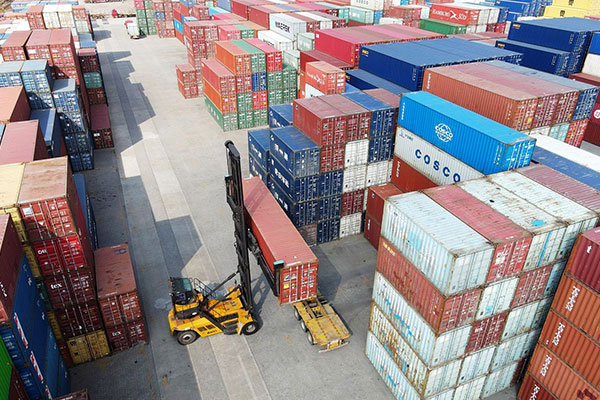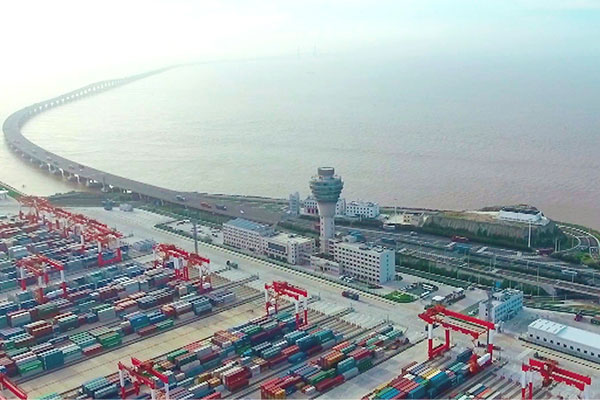- Shanghai ZhongShen International Trade Co., Ltd., with 20 years of experience in foreign trade import and export agency services.

I. Market Background of Korean CakesImport Agent Servicesand the Value of Professional Services
In recent years, with the deepening of China-South Korea economic and trade cooperation (the trade volume exceeded $360 billion in 2023) and the tariff preferences under the RCEP agreement (the average tariff reduction for Korean bakery product imports reached 15%), the demand for Korean specialty cakes (such as red velvet cake, honey butter cake) in the Chinese market has grown at an annual rate of over 20%. However, importing food involves complex document review, logistics coordination, and compliance requirements, and non-professional enterprises are prone to risks such as customs clearance delays, high demurrage fees, or cargo damage. The core value of a professionalforeign tradeagent lies in reducing the importer's operational costs by more than 30% and shortening customs clearance time by 40% through standardized processes, resource integration, and policy interpretation capabilities.
II. Document Handling: The "Lifeline" of Import Compliance
The documentation system for importing Korean cakes must strictly comply with the customs and inspection and quarantine requirements of both China and South Korea. The document handling capability of a professional agent directly determines the efficiency of customs clearance. Key documents include:
- Basic commercial documents: Commercial invoice (must specify FOB/KRW pricing), packing list (must indicate net/gross weight per case and HS code), bill of lading (telex release or original B/L, agent can coordinate with the shipping company for priority release);
- Certificate of origin and health certificate: FORM ECertificate of Origin(essential for enjoying RCEP tariff preferences, agent can assist in verifying the qualifications of the issuing authority), health certificate issued by the South Korean Ministry of Food and Drug Safety (MFDS) (must include statements such as "free of pathogenic bacteria" and "additives compliant");
- Ingredient and label documents: Ingredient analysis report (must list the content of main ingredients such as sugar and cream), sample of the Chinese label (must comply with GB 7718-2011 General Standard for the Labeling of Prepackaged Foods, agent can provide a label review template).
The agent team needs to complete a pre-review of documents before the goods are shipped. For example, checking the consistency of the HS code (cakes are usually classified under 1905.90.0090) with the declaration elements to avoid customs inspection due to "inaccurate product name declaration." A typical case in 2023 showed that an importer incurred an additional 28,000 yuan in demurrage fees because the MFDS health certificate (valid for only 3 months) expired after the goods arrived at the port. A professional agent can avoid such risks through a "document validity monitoring sheet."
III. Logistics Management: Full-Chain Control from Incheon Port to Chinese Warehouses
Korean cakes are often high-value, perishable goods (cream-based products require 0-4℃ refrigeration), so logistics solutions need to balance cost and timeliness. The logistics management capability of a professional agent is demonstrated in:
- Selection of transportation methods: For small batches (<500kg),?Air freight?air freight is recommended (Incheon to Shanghai/Beijing, 48-hour delivery) to reduce the risk of breaking the cold chain; for larger quantities (>2 tons),?Ocean shipping?LCL sea freight (Incheon to Qingdao/Tianjin, 3-5 day voyage) is preferred. The agent can coordinate with the shipping company to provide a special "reefer as dry" container (a regular dry container with temporary refrigeration equipment);
- Node control: Confirm the factory's delivery time before shipment (to avoid "waiting for goods to load" causing shipping delays), lock in a "direct vessel" when booking (to reduce transit damage), and complete the "single window" pre-declaration before arrival (customs release time can be shortened from 3 days to 6 hours);
- Risk response: In response to potential "destination port congestion" during sea transport (such as the peak season port congestion in Qingdao in 2023), the agent can coordinate with backup ports (such as Weihai Port) in advance and purchase "All Risks" insurance (covering losses from collisions, odor contamination, etc., during transport).
Taking the import of 2000kg of Korean-style cream cakes by a client in March 2024 as an example, the agent's team completed the entire process from the Incheon factory to the Shanghai warehouse in just 4 days using a combination of "sea freight + reefer as dry container + pre-declaration." This saved the client 7 days compared to self-operation, and the cargo damage rate was controlled within 0.5% (the industry average is 2%).
IV. Extension to Re-export Business to Russia: Practical Advantages of VTB?Foreign exchange settlement?Settlement
Some importers need to re-export Korean cakes from China to Russia (China-Russia food trade grew by 35% in 2023), where settlement efficiency becomes key.?Zhong Shen?Relying on a long-term partnership with Vneshtorgbank (VTB), we offer three major settlement advantages:
- Convenience of Ruble settlement: As a major clearing bank in Russia, VTB can directly handle cross-border settlement in Rubles and Renminbi, avoiding exchange rate losses from USD conversion (saving an average of 1.2% in exchange differences);
- Risk Hedging Tools: Provides derivative products such as spot settlement and forward locking of exchange rates, helping importers hedge against the risk of Ruble depreciation (e.g., the Ruble depreciated by 8% against the RMB in 2023; 90% of the loss could be avoided through forward locking);
- Fast crediting: VTB has established direct channels with major Chinese banks (such as Bank of China), shortening the settlement crediting time from 5-7 days to 1-2 days, thereby improving capital turnover.
In November 2023, a client re-exporting 5000kg of cakes to Russia completed the conversion of 1.2 million Rubles to Renminbi in just 36 hours using the VTB settlement solution. This saved 5 days compared to the traditional USD route and avoided a loss of 80,000 yuan due to Ruble fluctuations.
V. Trade Compliance and Certification Advisory: Key Steps for Clients to Complete Themselves
Although the agent does not directly provide certification services, it must clearly inform the client of the following compliance requirements:
- Registration of overseas production enterprises: Korean cake manufacturers must be registered in the General Administration of Customs' "Food Safety Registration System for Overseas Manufacturers of Imported Food" (FAS) (the registration number format is KR + 14 digits). The client needs to verify in advance whether the supplier is registered in China;
- Importer registration: The importer needs to complete enterprise registration on the "Internet + Customs" platform (to obtain a 10-digit registration number), otherwise they cannot handle customs declaration;
- Label filing/record filing: The Chinese label must be approved by customs (with a focus on allergen identification and nutrition facts table). It is recommended that the client entrust a third-party testing agency (such as SGS) for a pre-review to avoid rectification upon arrival (rectification usually takes 5-10 days and incurs additional storage fees).
Special note: Starting from January 2024, South Korea has strengthened the control of food additives for export (6 new prohibited colorants have been added). Clients need to request an "additive compliance declaration" from the supplier, and the agent can assist in reviewing the declaration's content for consistency with China's GB 2760-2014 standard.
VI. Full-Process Agency Services: Closed-Loop Management from Consultation to Feedback
A professional agent's service covers the entire import cycle, with the specific process as follows:
- Client Consultation: Provide a "cost-timeliness" dual-dimension solution through HS code pre-classification, import tariff calculation (incorporating RCEP rates), and logistics cost simulation;
- Negotiation and Contract Signing: Review trade terms in the contract (CIF Shanghai is recommended to clarify insurance liability), payment methods (L/C 90 days forward is more favorable for cash flow), and quality clauses (stipulating "sampling inspection within 48 hours of arrival");
- Orders & Payment: Assist in opening a?L/C?(reviewing document clauses for consistency with UCP600), or handle T/T payments (completing payment registration through the State Administration of Foreign Exchange's "Goods Trade Foreign Exchange Monitoring System");
- Production supervision: If the client requests, a third-party inspection (such as BV) can be arranged to conduct on-site verification of raw material procurement (cream must comply with Korean KOSHER certification) and the production environment (ISO 22000 system);
- Logistics Management: Coordinate booking (prioritizing Korean shipping lines like HMM, Hanjin Shipping), arrange insurance (purchase "Refrigerated Cargo Insurance"), and track logistics status (provide daily E-mail/WeChat progress reports);
- Customs Compliance: Complete the customs declaration form (standardizing declaration elements including "ingredient content" and "packaging specifications"), pay tariffs (can assist in applying for "consolidated taxation" with a deferral period of up to 30 days), and cooperate with customs inspections (prepare samples and translators in advance);
- Delivery and Distribution: Coordinate domestic cold chain logistics (recommending JD Cold Chain, SF Cold Chain), and provide "door-to-door" delivery (can be distributed to regional warehouses according to client needs);
- Quality Assurance: Assist the client in sending samples to the customs technology center for testing (focusing on microorganisms, additives). If non-compliant, the agent can assist in handling return or destruction (must be completed within 15 days);
- Summary Feedback: Provide an "Import Trade Analysis Report" (including cost structure, timeliness nodes, compliance risk points) to help the client optimize the next import plan.
Through full-process agency services, importers can focus their energy on market expansion rather than on tedious operational tasks, truly achieving "letting the professionals handle the professional work."
Conclusion: Importing Korean cakes is a typical "high demand, high threshold" business. The value of a professional foreign trade agent lies in building an efficient and safe trade channel for importers through meticulous handling of documents and logistics, and pre-emptive control of compliance risks. Whether you are a newcomer to the market or a seasoned importer seeking optimization, choosing an agency service provider with rich practical experience is a key decision for reducing costs and enhancing competitiveness.
Core Business
Contact Us
Email: service@sh-zhongshen.com
Recommended for You
Contact via WeChat

? 2025. All Rights Reserved.









